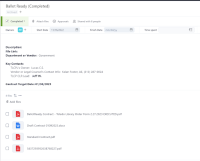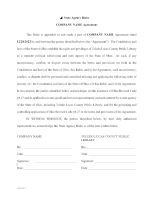Managing Risks Through Efficient Processes
Toledo Lucas County Public Library
Innovation Synopsis
We hold over 3,000 programs annually. In addition to the program agreements associated with those engagements, TLCPL manages over 500 contracts, Memorandum of Understandings (MOU), and other similar type agreements per year. Until 2019, the process was not systematized and had very little oversight in many cases.
Challenge/Opportunity
With 3,000 programs annually, each with its own agreement and contracts with outside parties. Agreements were negotiated and signed at the branch level blindly. Contracts were not reviewed nor sent higher within the organization for approval. At any given time, multiple individual program agreements were being enacted with no consistency or reason being applied to them. Staff were binding the Library to agreements that could go against policy or even be illegal. There was a lack of compliance.
Key Elements of Innovation
A standard Library program agreement was created in lieu of vendor agreements. This agreement encompasses major risk elements, policies, insurance, invoicing, payments, changes, cancellations, and processes associated with a typical program. Additionally, a contract routing form was developed to streamline this process. For non-program-related contracts, the committee adopted a process with six key elements to process agreements. These six elements include Intake, Assign, Review, Negotiate, Execute, and File.
Achieved Outcomes
The ultimate goal is to manage risk and improve contract efficiency. With this process, the CLR team centralized all contracts, standardized our terms and conditions, and routed all agreements through an intake form. Additionally, we utilized a project management tool to manage the process. We also improved our records retention and helped to protect the privacy of our customers and staff. In 2022, 440 program contracts were executed, which allowed thousands of programs to continue in our spaces.



